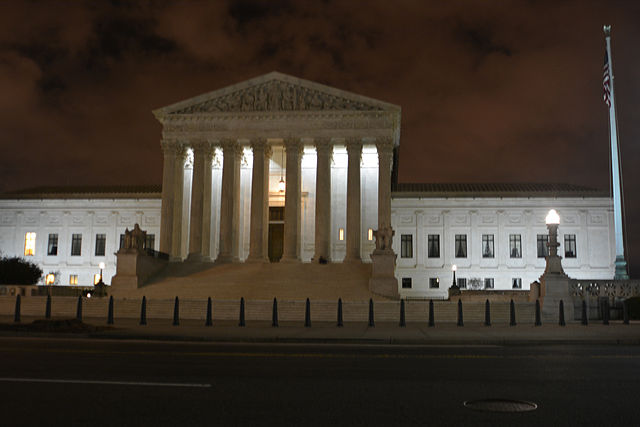

"The gap between the rich and the poor rapidly widens because of these outrageous moves, which involve passage of ownership, not just physical ownership but also monopoly on simple ideas."The SCOTUS also helps trolls (against Cisco) right now, as demonstrated by a decision that even British patent lawyers are denouncing. "Commentators have picked up on the identity of the patentee," wrote IP Kat, "a troll/patent assertion entity/non-practicing entity/etc - as being the headline grabber in this case, if only to paint a picture of General Counsel throughout Silicon Valley being on the edge of their seats awaiting this decision. However, the Court's comments in this respect were limited. The Court said that they were well aware of the industry that had developed in which patents were being used primarily for obtaining licensing fees. Such conduct can create a "harmful tax on innovation". However, because no issue of frivolity had been raised by the parties in this case the Supreme Court did not comment further, except to reinforce the power that the district courts have in dissuading frivolous cases."
I personally find the US patent system very intimidating. The rulings are almost always made in favour of Big Business interests; if not soon, then some time later. Based on these two new reports, Samsung now goes further with Android by patenting software. This is a software patent pertaining to computer vision, which is my area of research. It's all reducible to math and the US allows this math to be patented and monopolised. Yesterday I saw the article "Auction Co. Can't Shake Suit Over $2M Software Patents". How can software patents be sold for so much? How can they be sold at all? This beats the purpose (original purpose of the patent system) because patents just become passable weapons. To quote the article: "A California judge on Friday tentatively refused to toss an inventor’s suit alleging an auction company botched its handling of video technology patents she held with her software programmer ex-husband by selling them for vastly less than their $2 million minimum value, ruling the auctioneer had a fiduciary duty to the inventor."
"The rulings are almost always made in favour of Big Business interests; if not soon, then some time later."These "handling of video technology patents" are software patents, which again cover math. This is clearly a problem, but groups like the EFF continue losing focus. They should tackle scope of patents, not 'quality' of pertinent patents or patent trolls.
Consider this latest post from Adi Kamdar (EFF). "What a waste of resources," iophk wrote to us. "It is the ability to patent the wrong things that is the core of the problem not 'bad' patents or 'trolls', though they are also a problem."
Kamdar wrote:
Amidst the clamor of surveillance reform and TPP Fast Track negotiations, Congress is still finding time to work out the kinks of patent reform. One of the big topics of the day: inter partes review (IPR). This procedure lets third parties (like EFF) challenge bad patents (like the one used to go after podcasters).
We joined Engine, Public Knowledge, and R Street in sending a letter [PDF] to the Senate Judiciary Committee urging them to strengthen the IPR procedure, making it more accessible to and a more powerful tool for those of us acting in the public interest.